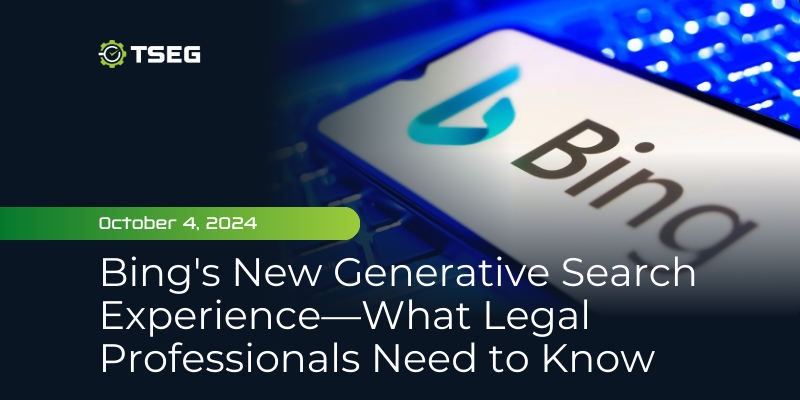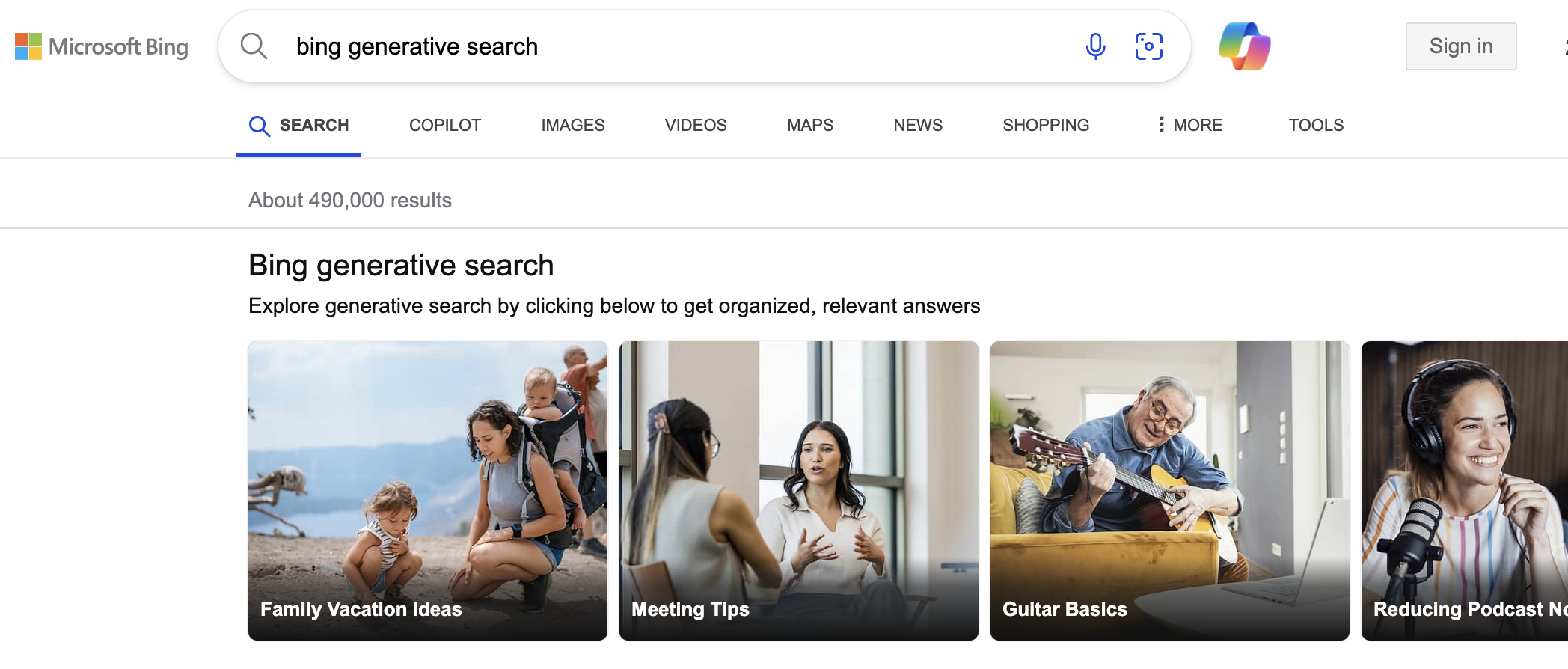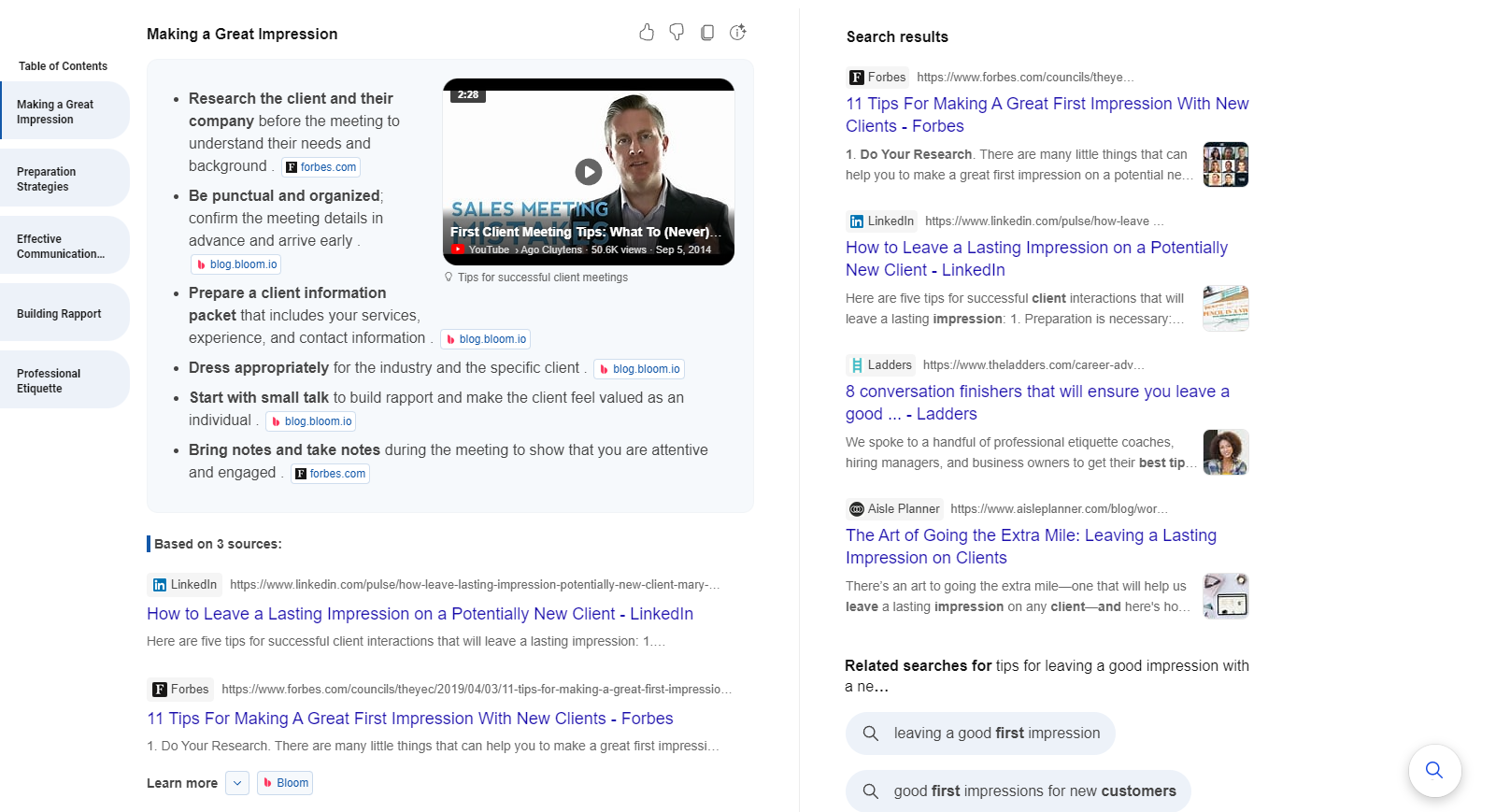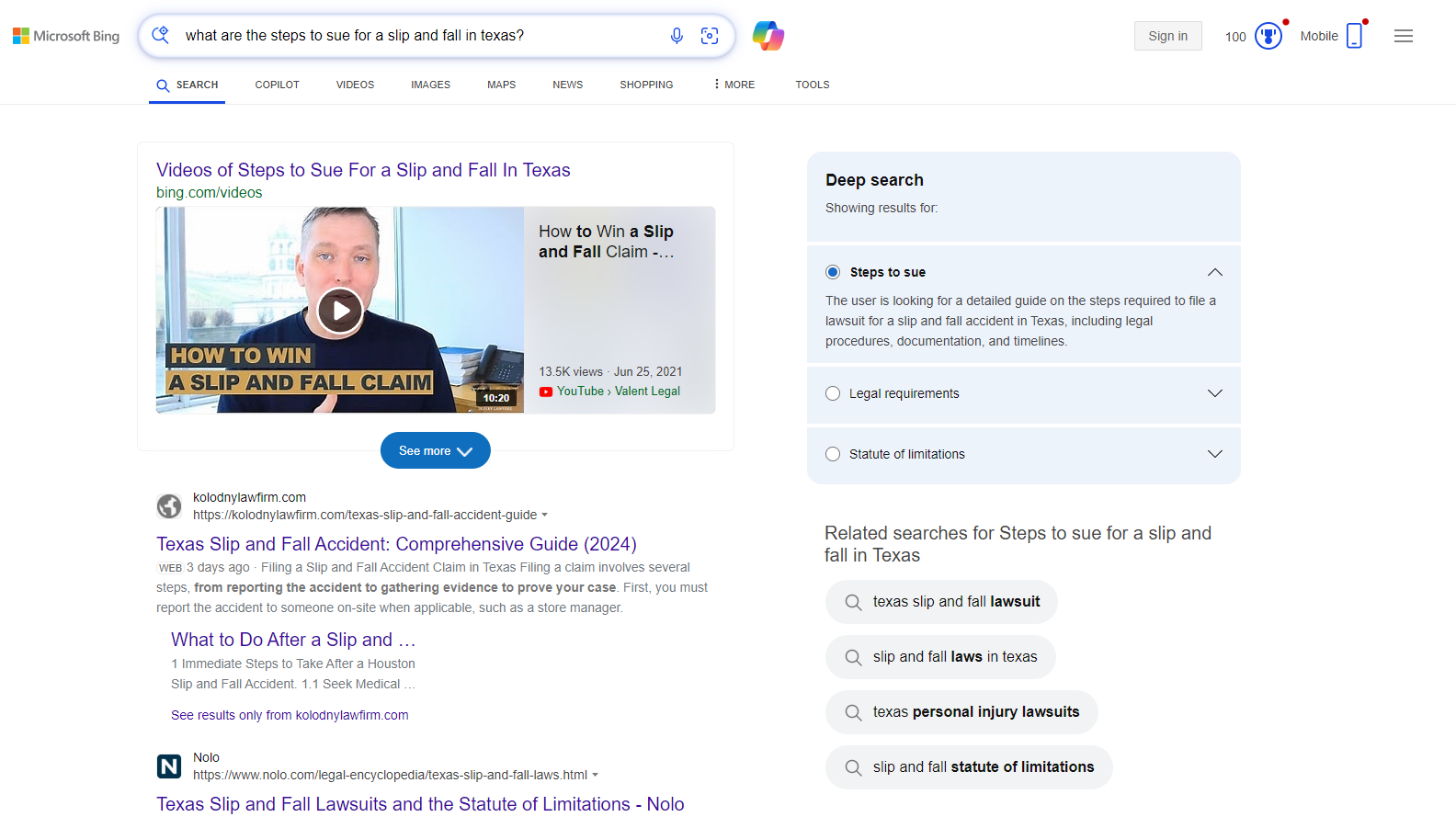Bing’s New Generative Search Experience—What Legal Professionals Need to Know
Posted on Friday, October 4th, 2024 at 6:40 pm

AI Search Brings New Potential for Law Firms
Microsoft’s Bing has begun rolling out its Generative Search Experience to a wider audience across the U.S., marking an important shift in search technology. This new feature, integrating the capabilities of generative AI, offers users richer, more detailed answers that extend beyond a standard list of web links. In our previous blog post, we explored how Bing planned to shape legal search with more context-aware results. Bing is now taking this concept further, integrating AI to provide even more dynamic answers that go beyond traditional SERPs. This next step in search innovation offers law firms a valuable chance to reach prospective clients through AI-driven tools and insights.
By combining Microsoft’s proprietary AI models and GPT-4, Bing is improving traditional search by generating well-organized content that includes in-depth summaries and clear references. This approach allows users to receive more interactive and informative responses to their questions, reshaping how legal services can be discovered online. Law firms that adjust to these advancements will find it easier to maintain visibility and relevance in an increasingly AI-enhanced search environment.
Blending Traditional Search with AI Enhancements
Bing’s Generative Search Experience combines the reliability of traditional search with the expanded capabilities of artificial intelligence. Rather than merely listing links, Bing now generates detailed summaries, organizes information into clearly defined sections, and provides source references—all curated by AI. For law firms, this change requires a strategic adjustment in content creation to ensure that their information is authoritative and valuable enough to feature in these enriched search results.
Appearing in AI-driven summaries requires more than keyword optimization; it necessitates content that is both informative and contextually relevant. Law firms should focus on creating material that answers client questions and provides deeper insights, prompting potential clients to engage further.
To explore the functionality of generative search in Bing within the U.S., simply type “Bing generative search” into the search bar. This will bring up a carousel featuring various queries that you can select and try out, giving you a firsthand look at how generative search provides more detailed and relevant answers across numerous subjects.

Exploring Bing’s New User Experience
Bing’s updated search experience merges traditional results with AI-generated content, offering a mix of succinct answers and conventional web links. This new format creates opportunities for law firms to enhance their online visibility by producing content likely to be highlighted in AI summaries. The key lies in providing well-researched, engaging material that can effectively capture user interest.
In Bing’s generative search carousel from above, clicking on the example “Making a Great Impression” displays the AI results on the left side of the results page, with citations, and traditional links on the right.

To thrive in this environment, content must go beyond answering cookie-cutter legal questions; it should also drive action via engagement. Law firms should aim to create resources that attract AI recognition and motivate potential clients to explore further. This includes video content, as shown in the screenshot above. A strategic focus on both quality and user engagement will help law firms boost visibility and foster meaningful connections with prospective clients.
Understanding Bing’s Deep Search Upgrade and Its Impact
Bing has enhanced its “Deep Search” feature, which takes extra time to analyze search queries with GPT-4 to better understand the user’s intent. This upgrade allows users to receive more thorough answers faster, making the search process more efficient by providing buttons for what Bing predicts users might search next. Users are more likely to remain engaged if they find relevant information quickly, without the need to type another query, increasing the chances of conversion.
Fast access to detailed information will be crucial for law firms aiming to create a strong first impression. By ensuring that valuable content is easy to find and comprehend, firms can enhance user experience and increase the likelihood of turning visitors into clients.


Key Insights on Adapting to Bing’s New Features
The advancements in Bing’s search capabilities, including generative AI and Deep Search, reflect broader trends reshaping how legal services are found online. Content quality is now more important than ever, and firms should prioritize insightful, easily digestible information that thoroughly addresses users’ questions. By monitoring search developments and refining content accordingly, law firms can boost their visibility and establish themselves as trusted resources. Microsoft breaks down their ranking factors for AI results into the following 5 areas:
- Topic match
- Level of detail
- Source credibility and trustworthiness
- Recency
- Popularity
Prepare Your Law Firm with TSEG
Bing’s new generative AI and enhancements to its search capabilities will significantly impact how clients discover legal services on their platform. Firms must adapt their SEO best practices by creating well-researched, engaging content that draws users in. Staying updated with changes in search technology and maintaining flexible content strategies will ensure a strong online presence and steady flow of new leads.
Success in legal marketing comes from proactive adaptation on the digital front. By refining websites to ensure they are informative, relevant, and user-friendly, law firms will be better positioned to connect with potential clients and foster genuine engagement. AI-driven search is reshaping the way we search, but with the right approach, these shifts present valuable new opportunities. Contact TSEG today to learn how we can help your firm get ahead.